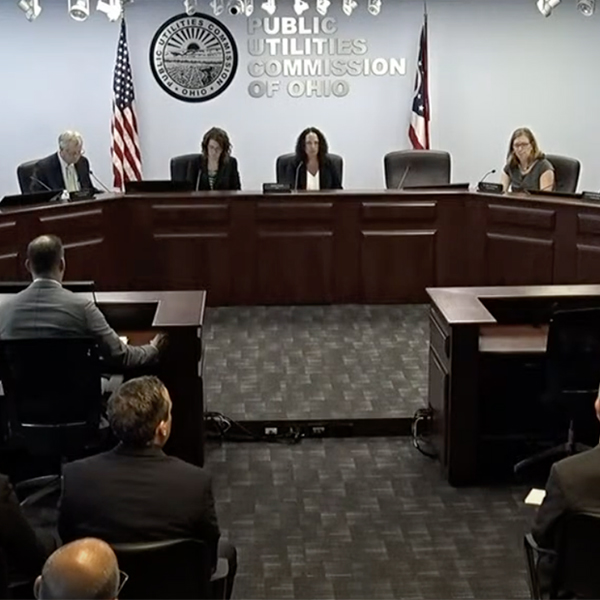
Transmission towers and lines in East Texas in 2010.
| Matthew T. Rader, CC BY-SA 4.0, via Wikimedia CommonsDespite consternation over the state of New England’s grid in the winter, ISO-NE sees no viable option for an out-of-market solution it could enact this year, officials told a stakeholder committee this week.
After about a month of reviewing its options, during which the grid operator looked at reviving two previously enacted winter programs, the recommendation to take no action leaves the region hoping for a mild winter.
ISO-NE had considered bringing back the Winter Reliability Program or starting the Inventoried Energy Program a year early. (See ISO-NE Weighs Reviving Reliability Programs for this Winter). But its analysis found that both of those programs carried cons and costs that would outweigh their potential benefits, the RTO told the Markets Committee in New Hampshire this week.
“Neither [program] is expected to provide significant benefits under extreme weather conditions, as their incremental reliability benefits are minimal given prevailing market conditions,” ISO-NE said in its presentation to the MC.
The Winter Reliability Program, which compensates resources for their unused fuel at the end of winter, would cost an estimated $170 million, nearly seven times as much as it cost when it was last used in 2017-2018. That includes what the RTO called “speculative” benefits, because there are already strong incentives for generators to maintain oil inventory even without the program in place.
The Inventoried Energy Program, which compensates resources for up to three days of inventoried energy that can be converted to electricity, has been approved for the 2023-2025 winters but will have to be changed subject to a recent court ruling. (See Court Strikes a Blow to ISO-NE Winter Plan.) It would cost an estimated $157 million and also carries questionable benefits.
Stockpiling Fuel
So with those options off the table, ISO-NE is hoping that cold weather doesn’t strain the system. A mild winter, like last year’s, would be manageable for the grid operator to get through, with no capacity deficiencies or load-shed events, the officials said.
A moderate winter, like in 2017-2018, could cause ISO-NE to rely on capacity deficiency procedures, laid out in OP-4. An extreme case, with sustained cold weather, could lead to load shedding and rolling blackouts.
A key question is whether generators will have enough on-site fuel this winter. Currently, New England’s fuel oil inventory is about 81 million gallons, a third of its storage capacity, ISO-NE said. But generators are expected to replenish their stores up to about 110 million gallons, with many of them waiting until fall as prices are expected to decrease by then.
LNG availability is also expected to be about the same as recent years, ISO-NE said.
In the event of fuel shortages, ISO-NE said it has a few levers it can pull, including asking for waivers of the Jones Act, emissions rules and hours-of-service restrictions for drivers carrying fuel. It could also ask the government to activate military staff or equipment to help move fuel.
And, as has been heavily used in Texas this week, the grid operator could ask customers to help with emergency conservation measures.
Looking Forward
“Energy adequacy will continue to be a concern beyond this winter because of limited infrastructure and vulnerability to large source-loss contingencies, which short-term programs will not address,” ISO-NE said in its presentation.
FERC’s September forum in Vermont will continue to address those issues, helping to “better inform the future longer-term solution space,” the grid operator said.
Work is also underway on a study with the Electric Power Research Institute looking at the operational impacts of extreme weather.


